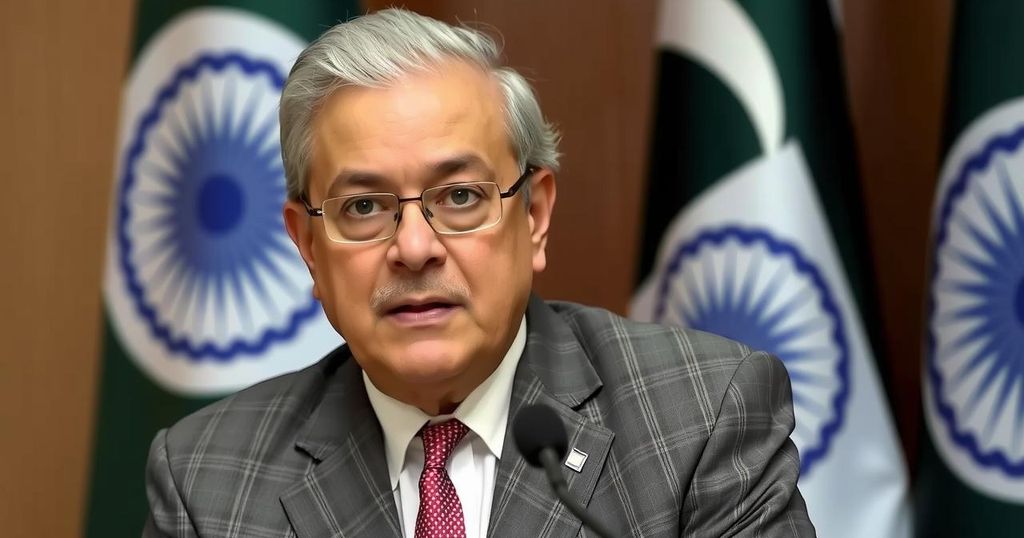Pakistani Foreign Minister Ishaq Dar emphasized the necessity of mutual willingness for normalizing relations with India. He announced plans to enhance ties with Bangladesh and addressed security challenges with Afghanistan. Additionally, he revealed updates on Pakistan’s nuclear energy initiatives while dismissing rumors concerning military use of Gwadar port.
Pakistani Deputy Prime Minister and Foreign Minister Ishaq Dar has underscored that the normalization of diplomatic relations with India is contingent upon mutual consent. During a press interaction at the Foreign Office, he emphasized that both countries must engage cooperatively, quoting, “It takes two to tango.” Dar elaborated on Pakistan’s diplomatic endeavors since the current government assumed power in 2022. Moreover, he shared plans to revisit Bangladesh to enhance bilateral ties following recent political shifts in Dhaka.
Dar characterized Bangladesh as a “lost brother,” expressing ambitions to bolster economic and trade collaborations with the nation. He acknowledged receiving a formal invitation from Bangladesh’s Chief Adviser Muhammad Yunus during a recent meeting held in Cairo. The conversation veered towards Pakistan’s relationship with Afghanistan, wherein Dar expressed a keen interest in fostering cooperative ties but identified terrorism as a persistent hurdle. He noted delays in planned visits to Kabul due to security concerns stemming from recent terrorist attacks. Additionally, Dar critiqued former intelligence chief General Faiz Hameed for initiating dialogue with the Tehreek-e-Taliban Pakistan (TTP), emphasizing its threat to national security.
The Minister also provided updates regarding Pakistan’s nuclear energy capabilities, announcing the initiation of the Chashma 5 nuclear power project. During a segment of the event, outgoing Foreign Office spokesperson Mumtaz Zahra Baloch dispelled rumors regarding the military use of Gwadar port, reiterating its purpose for national development.
Ishaq Dar’s statements reflect Pakistan’s ongoing diplomatic initiatives, the need for collaborative relations with regional neighbors, and the critical challenges posed by terrorism.
The context of this dialogue revolves around Pakistan’s diplomatic efforts, particularly regarding its relations with neighboring India and Bangladesh. After the PML-N government took office, there has been a concerted effort to alleviate perceptions of isolation and strengthen economic ties. Dar’s remarks on India underscore the necessity of reciprocal engagement in international relations, emphasizing mutual benefits. Additionally, the political landscape in Bangladesh has shifted dramatically post-August 2022, prompting renewed dialogue between Islamabad and Dhaka. Pakistan’s growing concerns about terrorism, especially from factions in Afghanistan, inform its diplomatic strategy as it seeks regional stability while expanding its nuclear energy capabilities.
In summary, Ishaq Dar’s comments highlight the importance of bilateral cooperation in improving relations with India and Bangladesh while tackling the pressing issues of security and terrorism. His emphasis on mutual effort reflects a diplomatic approach aimed at fostering understanding and collaboration within the region. The developments in Pakistan’s nuclear energy sector and the reassurance regarding Gwadar port signify an ongoing commitment to national and regional development amid these challenges.
Original Source: www.business-standard.com






